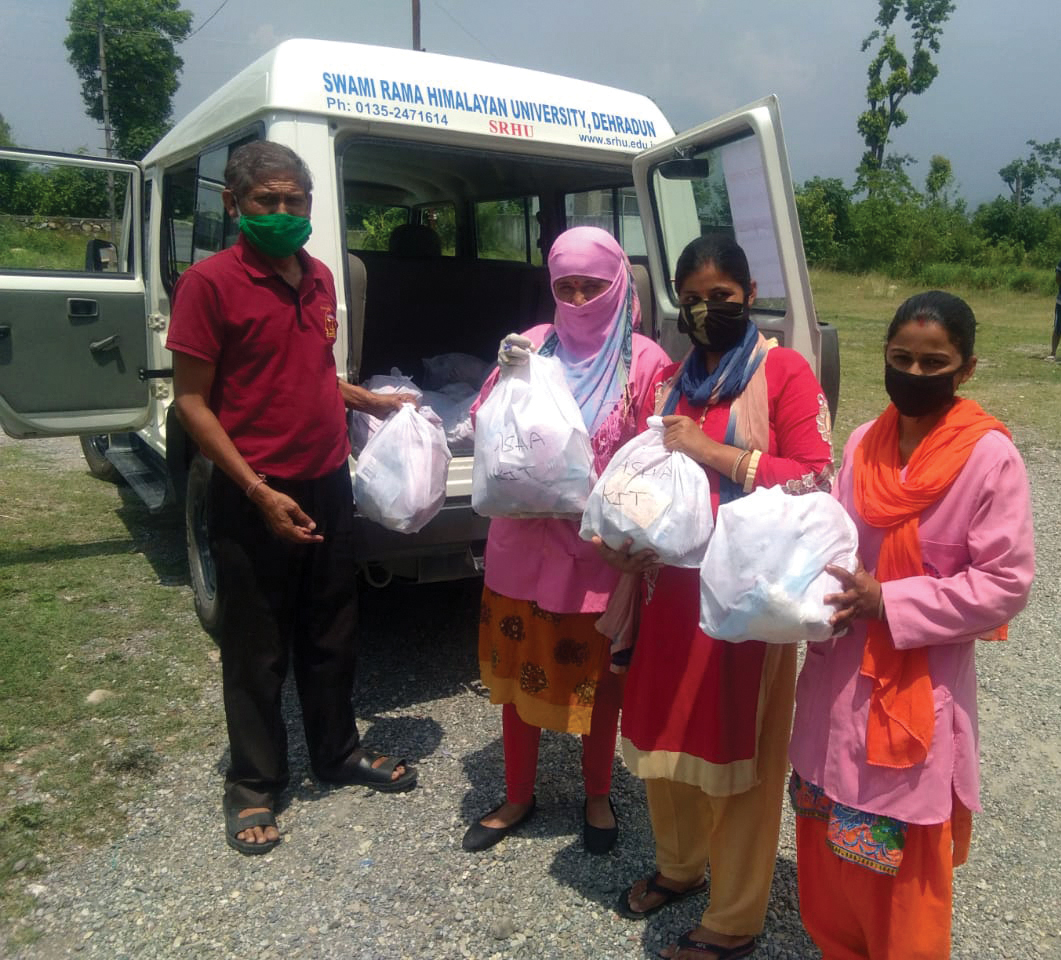It has beeen very challenging for health care systems to contain Covid-19 transmission in the rural areas, especially in Uttarakhand because of the shortage of doctors, hospital beds and equipment, especially in densely populated underserved areas. Covid-19 creates a special challenge considering the poor testing services, surveillance system and above all inadequate and insufficient medical care and service delivery system. People have been facing great stress amid Covid-19 because of the interruption of basic needs like food, health care, water and sanitation despite the efforts of the government. In total, over 4,000 kits in recent months were distributed by RDI in Tehri, Pauri, Haridwar and Dehradun districts to maintain supply of essential goods such as food and medicine kit, and for extending its support to existing public health system. These kits include personal protection kit (PPE), food kit, medicine kit, adolescent kit, nutrition kit and mask.
RDI took Covid-19 relief initiatives to support and safeguard people in its field areas and to reduce the distress. It started need-based services to community and in first phase distributed 341 ration kits in Bahadrabad block of Haridwar district, 120 kits in Kotdwar and 90 in Yamkeshwar of Pauri Garhwal district, 229 kits in Doiwala and Rishikesh areas of Dehradun, thus reached out to over 40 villages. RDI also provided 500 Personal Protection Equipment (PPE) kits to the Chief Medical Officer, Haridwar. 1,000 PPE kits were distributed in government and private hospitals in Dehradun district and 180 were also provided to government hospitals in Tehri district. 115 nutrition kits (for pregnant ladies having nutrition supplements and eatables) were provided in field areas. Clothes were also distributed to women from poor families. Keeping in mind the needs of elderly people, special kits having articles of daily use were also distributed in the field areas. Special home-to-home visits were done for pregnant, lactating and neo natal mothers for their health screenings and counselling.
To support overall health of youngsters and adolescents, online yoga sessions were conducted in the mornings. Continuing need-based services, adolescent hygiene kits were distributed to 398 boys and 498 girls. 72 first aid kits, 800 food kits, 500 masks, 75 protein supplements and 124 clothes were distributed among the community.
RDI faced a few challenges in the villages, as people were neither following social distancing nor using masks. In many of those identified locations, health awareness was done. Additionally close to 2,300 masks were distributed to families of pregnant ladies, people with disability, children of marginalized sections and migrant labourers.
80 Accredited Social Health Activists (ASHAs) from Bahadarabad (Haridwar district) Doiwala (Dehradun district) Kotdwar (Pauri district) areas were trained by RDI through online sessions to handle psychological issues of pregnant and lactating mothers during Covid-19. Anxieties and other psychological issues emerging due to Covid-19 of pregnant ladies of Bahadarabad area were addressed through regular telephonic counseling and follow up in which 50 pregnant ladies were mentored.
Media wing of RDI created a few short films reaching out to 10,000 people during this period and promoted community awareness and education in a simple and engaging manner and disseminated precise information on social distancing, hand hygiene, and how to minimize stress and phobia among the community.

